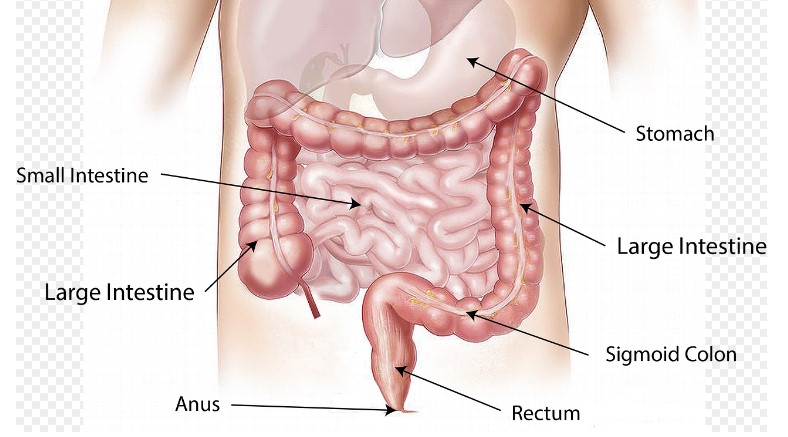The colon is the portion of the digestive system that processes, stores, and passes food waste. Sometimes the colon is referred to as the large intestine or large bowel, which consists of the cecum, the ascending colon, the transverse colon, the descending colon, the sigmoid colon, and the rectum.
Like any organ in the body, the colon can be affected by disease. Diagnosis of these diseases is determined by a gastroenterologist (GI) or primary care provider (PCP). Some conditions can be treated with medications or diet changes, as determined by the GI provider or PCP. However, some require surgery, at which point the patient is sent to a colorectal or general surgeon.
Two of the conditions we often treat with surgery are diverticulosis and colon cancer.
Diverticulosis
Diverticulosis is a condition where diverticulum, a small pouch-like structure, is present in the colon. (The plural of diverticulum is diverticula.) If these pouches become inflamed, the condition is referred to as diverticulitis. This inflammation can cause severe pain, nausea, fever, and changes in bowel habits. A person who suffers from diverticulitis can often be treated with medication and bowel rest. However, in severe cases or if the condition recurs, surgery may be required.
Colon Cancer
Colon cancer, or colorectal cancer, usually begins as a small clump of cells called a polyp. Polyps are not always cancerous, but some can turn into colon cancer over time. Generally, colon polyps, including polyps that have become malignant (cancerous) do not cause any symptoms. This is why PCPs and GI providers recommend regular screenings, called colonoscopies. Colonoscopies are most often performed by gastroenterologists. During this procedure, the patient is sedated, and a camera is inserted via the anus into the rectum and colon so the provider can assess the colon for polyps or masses.
If you are experiencing any symptoms, such as pain, nausea, vomiting, or rectal bleeding, it is important to contact a gastroenterologist for a work-up of your symptoms. The GI physician will investigate your symptoms by discussing your personal and family history and may order radiology imaging or schedule a colonoscopy for you.
The gastroenterologist will diagnose your condition and, depending on the findings, may then refer you to our office for surgical consultation.

